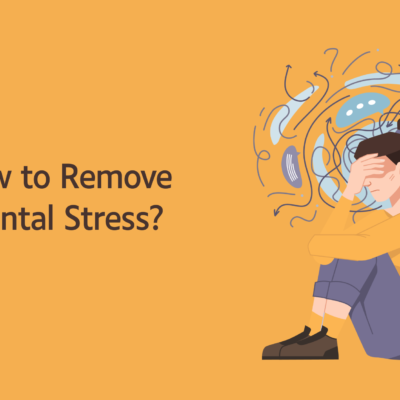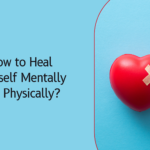How to Remove Mental Stress: In today’s fast-paced world, mental stress has become an all-too-common experience for many people. Whether it’s due to work pressure, personal relationships, or the ever-present demands of modern life, stress can take a significant toll on both our mental and physical well-being. Fortunately, there are ways to manage and reduce stress, allowing us to regain control over our lives and maintain a healthier, more balanced mindset. In this article, we’ll explore practical strategies for removing mental stress, fostering peace, and improving your overall mental health.
Also Read:
Understand the Root Causes of Stress
Before diving into ways to alleviate stress, it’s important to understand where it comes from. Stress can be triggered by a variety of factors, including work pressure, financial problems, health concerns, relationship issues, or even the daily demands of life. Sometimes, stress is a response to a situation that feels overwhelming or out of control. Other times, it’s a result of long-term patterns of negative thinking or unresolved emotions.
To effectively remove mental stress, it’s essential to identify the underlying causes. Ask yourself: What specific situations or thoughts trigger my stress? Once you identify the root cause, you can begin to address it directly.
How to Remove Mental Stress?
Practice Mindfulness and Meditation
Mindfulness and meditation are powerful tools that can significantly reduce mental stress. Both practices focus on grounding you in the present moment, which helps prevent you from becoming overwhelmed by past regrets or future anxieties.
- Mindfulness: Mindfulness is the practice of being fully aware of the present moment, without judgment. It involves paying attention to your thoughts, feelings, bodily sensations, and the environment around you. When you practice mindfulness, you learn to observe your stress triggers without reacting to them. This helps you gain clarity and control over your emotional responses.
- Meditation: Meditation is a more structured practice that involves quieting the mind and focusing on a single object or thought. This could be your breath, a mantra, or visualizing a peaceful scene. Studies have shown that regular meditation can lower stress levels, reduce anxiety, and increase overall mental clarity.
To get started with mindfulness or meditation, set aside just 5-10 minutes each day to practice. There are plenty of apps, online resources, and guided sessions that can help you build a meditation routine.
Exercise Regularly
Exercise is one of the most effective ways to reduce mental stress. Physical activity has a profound impact on your brain by releasing endorphins, the body’s natural “feel-good” hormones. Regular exercise can improve mood, reduce feelings of anxiety, and promote better sleep—all of which are key to managing stress.
- Aerobic Exercise: Activities such as jogging, cycling, swimming, or dancing increase heart rate and help reduce stress. These exercises release endorphins and improve circulation, which can enhance overall mood.
- Yoga and Tai Chi: These mind-body practices combine gentle movement, breathing exercises, and meditation, helping to reduce both physical and mental tension. Yoga, in particular, has been shown to lower levels of the stress hormone cortisol.
Start with activities you enjoy, and gradually increase the intensity and frequency of your workouts. Even a 30-minute walk a few times a week can significantly reduce stress levels.
Prioritize Sleep and Rest
Lack of sleep or poor-quality sleep can exacerbate mental stress. When you’re sleep-deprived, your body produces more stress hormones, and your ability to handle stress diminishes. Getting sufficient rest is crucial for mental recovery and emotional regulation.
- Create a Sleep Routine: Establishing a consistent bedtime routine helps signal to your body that it’s time to wind down. Avoid screens, caffeine, or heavy meals right before bed.
- Sleep Environment: Make your bedroom a peaceful sanctuary for sleep. Ensure your room is cool, dark, and quiet, and invest in a comfortable mattress and pillows.
Aim for 7-9 hours of sleep each night to ensure your body and mind are adequately restored. If you struggle with sleep, try relaxation techniques such as deep breathing or progressive muscle relaxation before bed.
Manage Your Time Effectively
Often, stress is a result of feeling overwhelmed by too many tasks or responsibilities. Time management is essential for reducing stress by helping you organize your tasks and avoid the feeling of being constantly “behind.”
- Prioritize Tasks: Make a to-do list each day, and focus on completing the most important tasks first. Break larger projects into smaller, more manageable steps to prevent feeling overwhelmed.
- Set Realistic Goals: Be realistic about what you can accomplish in a given timeframe. Avoid overloading yourself with commitments that you can’t manage.
- Take Breaks: It’s important to take short breaks throughout the day to recharge. Even a five-minute pause to stretch, walk, or breathe deeply can help clear your mind and reduce stress.
By learning to manage your time effectively, you can avoid the build-up of stress that comes from feeling constantly busy or behind schedule.
Connect with Others and Seek Support
Isolation can amplify stress, and trying to handle everything alone often leads to burnout. Building a strong support network of friends, family, or colleagues can help alleviate stress and provide emotional relief.
- Talk About Your Feelings: Sometimes, the simple act of talking about what’s stressing you out can make a huge difference. Share your feelings with someone you trust, and allow yourself to vent in a healthy, supportive environment.
- Seek Professional Support: If stress becomes overwhelming or leads to anxiety or depression, consider seeking help from a mental health professional. Therapy or counseling can provide you with tools and coping strategies to manage stress more effectively.
- Join a Support Group: If you’re going through a particularly challenging situation, joining a support group of individuals who understand your experiences can provide comfort and reassurance.
Focus on Positive Thinking
Our thoughts have a powerful influence on our emotions. Negative thinking patterns can exacerbate stress, while positive thinking can help to alleviate it. Cognitive behavioral therapy (CBT) is a proven approach that helps individuals challenge negative thoughts and replace them with more positive, realistic ones.
- Challenge Negative Thoughts: When you catch yourself thinking negatively, pause and ask yourself if the thought is true or helpful. Replace negative thoughts with more balanced, constructive ones.
- Practice Gratitude: Focusing on the positive aspects of your life can shift your mindset. Keep a gratitude journal, where you write down three things you’re thankful for each day. This practice can help reduce stress by shifting your focus away from negativity.
- Visualization: Take a few moments to close your eyes and visualize yourself in a peaceful, stress-free environment. Imagining calm and relaxation can help ease mental tension.
Unplug from Technology
Technology can be a major source of mental stress, especially with the constant barrage of notifications, emails, and social media updates. Taking time to disconnect from technology is essential for reducing mental clutter and giving your mind a much-needed break.
- Set Boundaries: Establish boundaries with your phone, social media, and email. Designate specific times during the day to check messages, and avoid checking them right before bed.
- Digital Detox: Consider taking a “digital detox” for a day or weekend, where you completely unplug from all screens. This can help reset your mind and promote deeper relaxation.
Engage in Creative Activities
Engaging in creative activities can serve as an effective outlet for stress. Whether it’s painting, writing, gardening, or crafting, creative expression allows you to release emotions and focus on something enjoyable.
- Art and Creativity: Try journaling, drawing, or painting to process your emotions and relax your mind.
- Music and Dance: Listening to music, playing an instrument, or dancing can also help you release stress and improve your mood.
Learn to Say No
A significant amount of stress comes from taking on too many responsibilities or commitments. Learning to say “no” is a vital skill that can help you avoid overwhelm and protect your mental health.
- Set Boundaries: Politely but firmly set limits with others. Recognize that it’s okay to turn down invitations or requests if they don’t align with your priorities or if they add unnecessary stress to your life.








